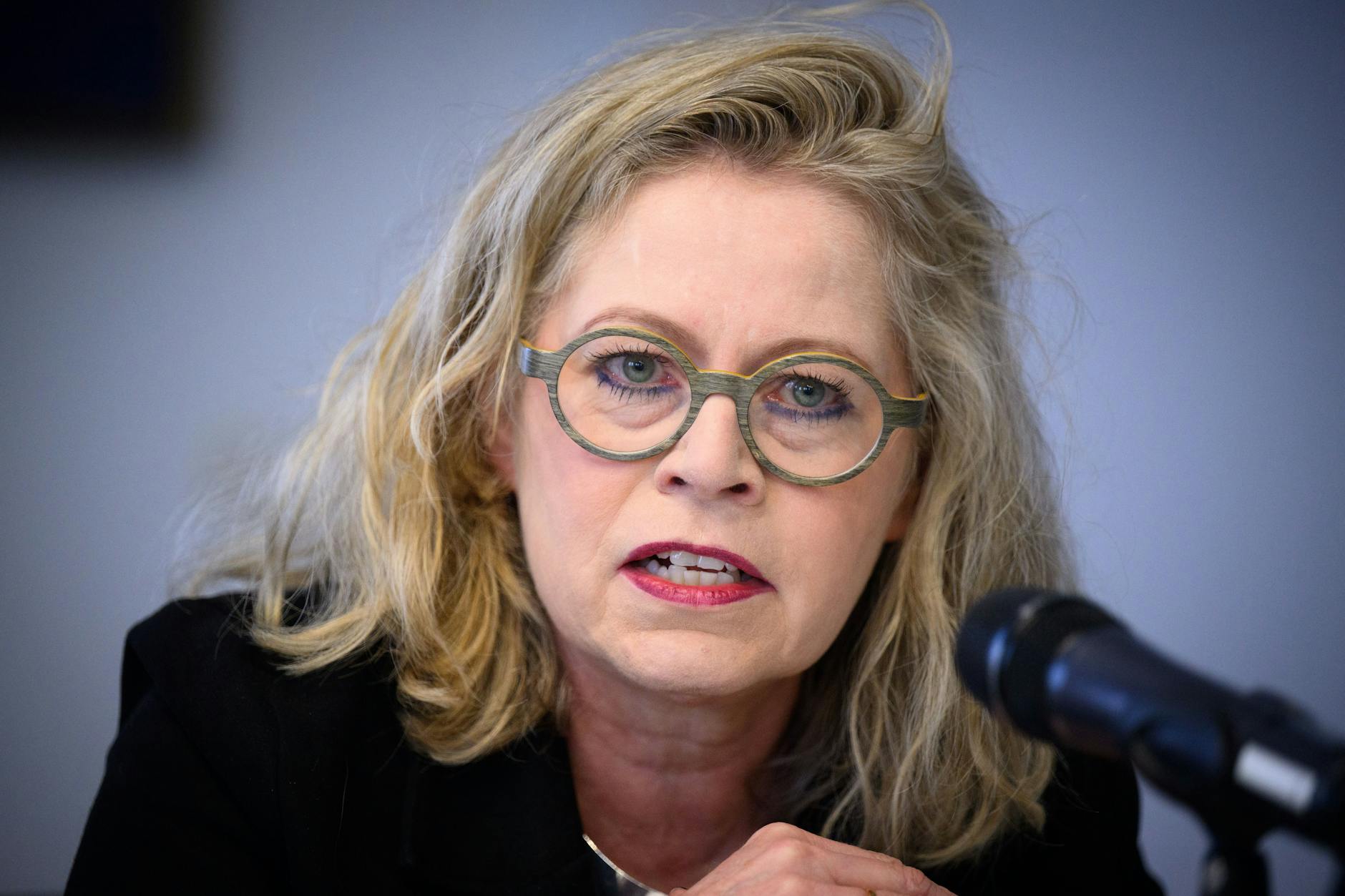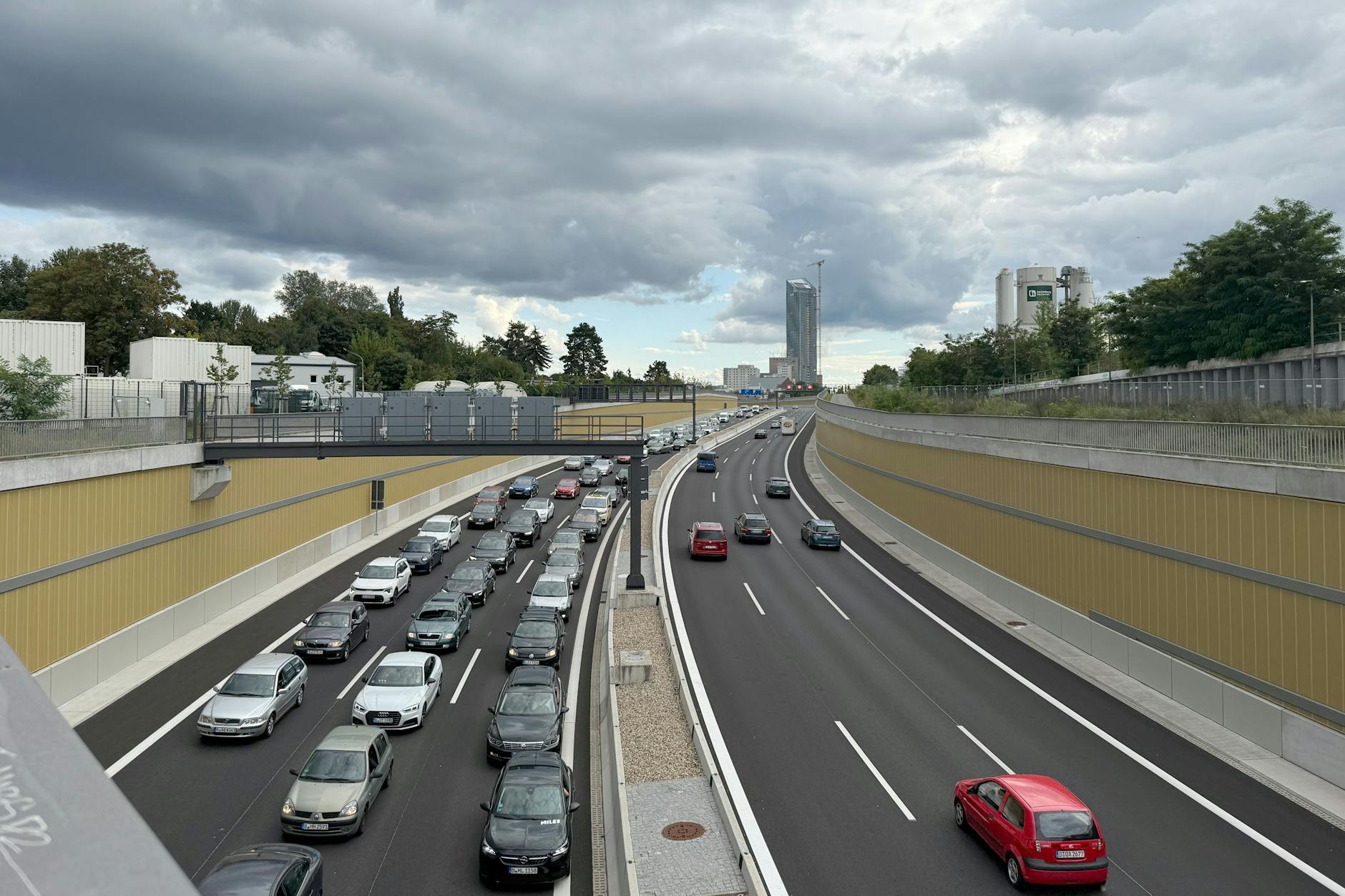A100 in Berlin: Does the new motorway have to be closed again immediately?

The Berlin Parliament was on summer recess for two months. On Thursday, at its first session after the break, it seemed to pick up where it left off: It was debating the 16th construction phase of Berlin's A100 urban motorway. The 3.2-kilometer section between the Neukölln interchange and Treptower Park cost around 720 million euros and, at 225,000 euros per meter, is Germany's most expensive motorway section. And it is certainly also one of the most controversial.
There are already calls to close the section, which was reopened on August 27th, again. The reason: the daily traffic jams. Because traffic flows into the Elsen Bridge over the Spree, which is currently only one-lane, progress is painfully slow. Among other things, the BVG has already temporarily suspended two bus routes because the buses were seemingly irretrievably stuck in traffic.
Berlin's Transport Senator: "Traffic is behaving differently than predicted in the simulation"Berlin's Transport Senator Ute Bonde had acknowledged the problems the day before in the Transport Committee of the House of Representatives. One reason, she said, was that "traffic is behaving differently than predicted in simulations." The CDU politician announced immediate measures, including a bus lane and different turning regulations.
Transport Senator Ute Bonde is responsible for the most blatant road blockade in the last generation. The only difference is that hers begins anew every day.
Traffic that doesn't behave like it does in simulations. Such statements are grist to the mill for the motorway's critics – and so the parliamentary session also became an opportunity to settle scores with the transport senator. Left Party transport expert Kristian Ronneburg deemed Bonde's reference to traffic simulations "absurd." At the same time, he viewed the CDU-SPD coalition as "a victim of its own ideology."
And Green Party transport politician Antje Kapek reminded the senator of a quote from a previous debate on the BVG crisis at the beginning of the year. Bonde had said: "Crisis? – What crisis?" For Kapek, this has long been an iconic quote, and it still symbolizes Bonde's politics today: "namely, the consistent refusal to truly acknowledge reality." Because this reality, according to Kapek, "is the greatest traffic collapse in our history." And the senator is solely responsible for this chaos. Bonde bears responsibility for the "most blatant road blockade since the last generation. With the only difference that hers begins anew day after day," Kapek said.

From Kapek's perspective, all of this leads to only one conclusion: the recently opened section of the motorway must be closed again – at least until the Elsen Bridge is rebuilt. According to the traffic authority, this could happen by the end of the year.
Just as the Greens and the Left Party consider the expansion of the motorway a regression to a time when cities were exclusively car-friendly, the CDU and Berlin's business community are staunchly defending the expansion. And they are calling on the responsible federal government—the A100 is a federal motorway, which the federal government also pays for—not to stop now, but to stick to the plans for the 17th construction phase. This is to run from the Elsenbrücke north to Storkower Straße in Lichtenberg.
In the plenary debate, CDU transport politician Johannes Kraft attempted to absolve his fellow party member Bonde of responsibility for the chaos of the first few weeks. Instead, he blamed former Green Party transport senator Regine Günther, who had delayed plans to remove the bottleneck at the Elsen Bridge. "This bridge could have been finished long ago," Kraft said. Then the drainage from the motorway wouldn't be a problem now.
CDU politician: Greens and Left want to drive craftsmen out of the cityKraft accused the Greens of not wanting efficient city streets and instead driving out tradespeople and commercial traffic, who have long been waiting for better connections to northeast Berlin. He also once again advocated for the implementation of the 17th construction phase, saying it would significantly ease the pressure on residential areas in Neukölln, Treptow, and Lichtenberg.

Chamber of Commerce and Industry Managing Director Manja Schreiner is also a declared fan of the motorway expansion. "The 16th construction phase of the A100 is a tangible benefit for Berlin," said Schreiner, who served as Berlin's transport senator until a year ago, Bonde's predecessor. And the expansion shouldn't stop halfway. "A closed ring road would noticeably relieve the city center of through traffic."
The opposition AfD also supports the highway expansion. Its transport policy chief, Rolf Wiedenhaupt, a former Christian Democrat, called in parliament for the start of the 17th construction phase. "And we should also plan the 18th construction phase," he said.
Somewhere in between, as so often, is the SPD, the CDU's minor coalition partner. Transportation expert Timo Schopf spoke of "not a good start and no responsible traffic planning." He, too, called for the opening to be postponed until the Elsen Bridge has been upgraded.
Schopf also spoke out against a further extension of the Autobahn. He said this would not make sense. The relevant Bundestag resolutions are "not set in stone" and can be changed, he said. In the next breath, Schopf made a clear statement to the Greens and the Left: The SPD parliamentary group will not vote against its own Senate. This was also the case during joint governments with the Greens and the Left, when things got difficult.
Berliner-zeitung





